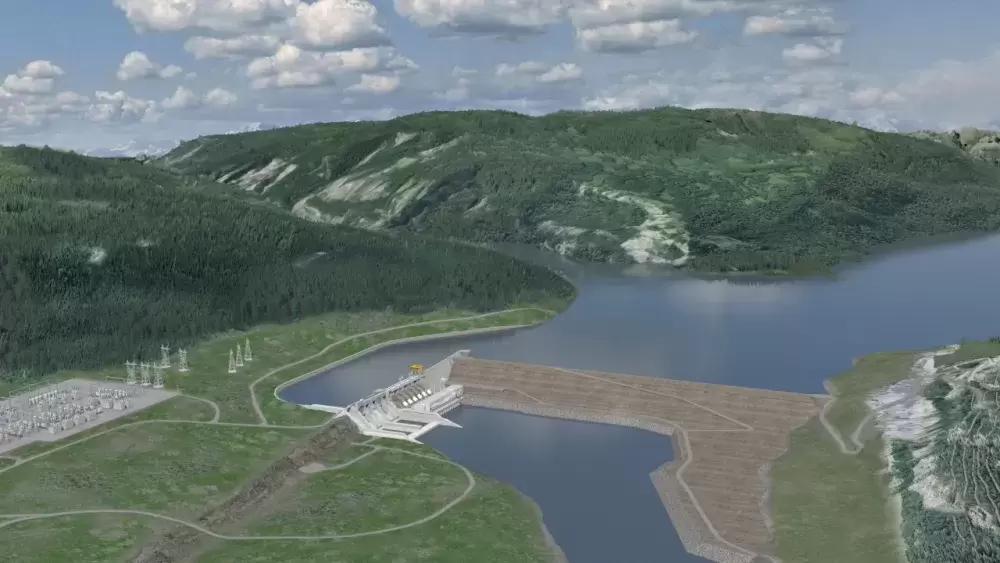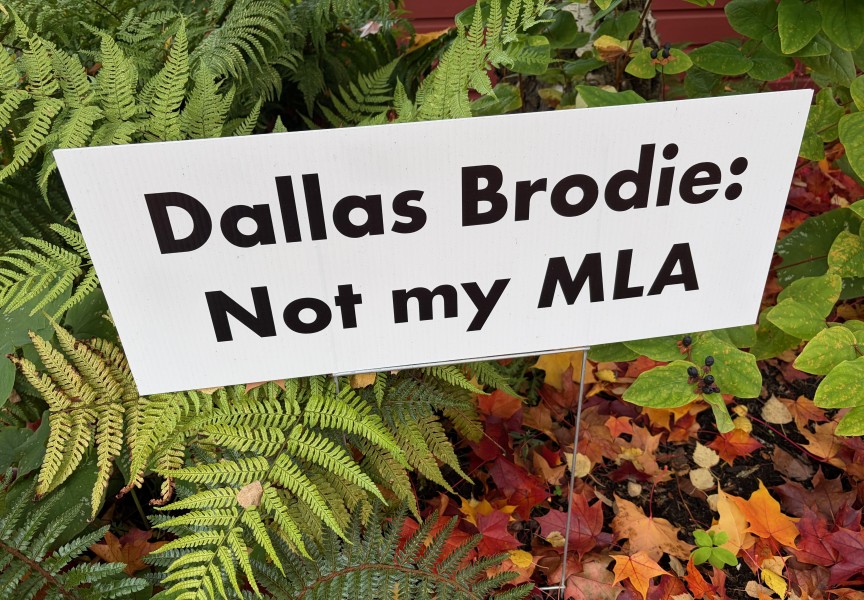The B.C. government is delivering a disparaging message to micro hydroelectric producers, informed by a report that recommends cancelling a program that has allowed several Vancouver Island First Nations to harness power from their own territories.
As it released the results of an internal review of B.C. Hydro today, the province stated that residents will bear the cost of electricity purchase agreements for locally generated power, an approach that was “largely the wrong energy profile.” Due to contracts to buy electricity from independent power producers - including some Nuu-chah-nulth nations - B.C.’s consumers will have to pay $16 billion over the next 20 years, averaging approximately $200 a year per customer, according to a report for the Ministry of Energy, Mines and Petroleum Resources.
“The report concludes that BC Hydro bought too much energy, the wrong type of energy and paid too much for it,” stated the ministry in a media release, which blames the previous Liberal government.
“Due to the decisions of the previous government, ratepayers will overpay billions of dollars for power they did not need,” said Michelle Mungall, minister of Energy, Mines and Petroleum Resources. “B.C. didn’t benefit. BC Hydro customers didn’t benefit. A small number of well-placed independent power producers benefitted, and customers were stuck with a 40-year payment plan.”
But several of these independent power producers are First Nations who, besides electricity, generated economic opportunity in their territories from micro hydro. The report, which was authored by former B.C. Treasury Board director Ken Davidson, lists smaller-scale hydro generating projects owned by the Tla-o-qui-aht and Hupacasath First Nations among those that secured electricity purchases agreements to sell power back into the grid.
By harnessing streamflow over a descent in elevation, the Tla-o-qui-aht’s Canoe, Haa-ak-suuk and Winchie Creek hydro projects are estimated to generate enough power for 5,500 homes on average, far more than exists in Tofino, Ucluelet or other nearby communities on Vancouver Island’s west coast. But the province states that such local initiatives are more costly than relying on large-scale hydro-electric dams on the Columbia and Peace rivers – despite the fact that only 35 per cent of Vancouver Island’s electricity is generated on the island.
“BC Hydro’s dams are flexible resources that provide clean electricity and can be ramped up and down as necessary,” stated the ministry, which compares a $33-per-megawatt-hour cost from large dams to $100 from independent producers.
NTC President Judith Sayers has long been an advocate for micro hydro, and was elected chief when the Hupacasath developed a generating station at China Creek near Port Alberni. She disputes the province’s cost comparisons, and said its messaging fails to consider the economic benefits of clean energy micro hydro development.
“There’s been at least $9 billion invested in B.C. from clean energy projects, and over 17,000 jobs,” she said. “It brings jobs to areas all over the province, Site C is going to be in one area and it’s going to create 25 [long-term] jobs.”
Since 2008 the Tla-o-qui-aht and other First Nations have benefitted from BC Hydro’s Standing Offer Program for micro hydro initiatives. In 2017 the province’s utility provider stopped taking applications for the program, and the next year BC Hydro announced that no electricity purchase agreements would be issued until results of the ongoing review come out. Now Davidson’s report recommends that the province eliminate the Standing Offer Program, which would require regulatory changes as the program is prescribed under B.C. legislation.
Toquaht, Ahousaht, Huu-ay-aht and Ditidaht are among the Nuu-chah-nulth nations with a micro hydro project at some stage of consideration or development. Eliminating the Standing Offer Program brings uncertainty for the many First Nations that want to generate hydro in their territories.
“What they’re doing is killing an industry…there’s no opportunity to sell to the grid,” said Sayers. “I just think that they’ve put industry ahead of First Nations. This was a very conscious decision, in my opinion, that they were going to cut First Nations out of the clean energy industry.”
Ironically, the province’s recent statements criticizing micro hydro come after Premier John Horgan’s government delivered a throne speech on Feb. 12 committing to legislatively implement the United Nations Declaration on the Rights of Indigenous People. UNDRIP stresses the right of Indigenous people to self-determination.
“Government recognizes that many Indigenous nation communities have seen small-scale private power as economic development opportunities,” stated the province. “That is why the Ministry of Energy, Mines and Petroleum Resources will be engaging with Indigenous nations to discuss the extent to which the suspension of the Standing Offer Program may affect individual nations.”







